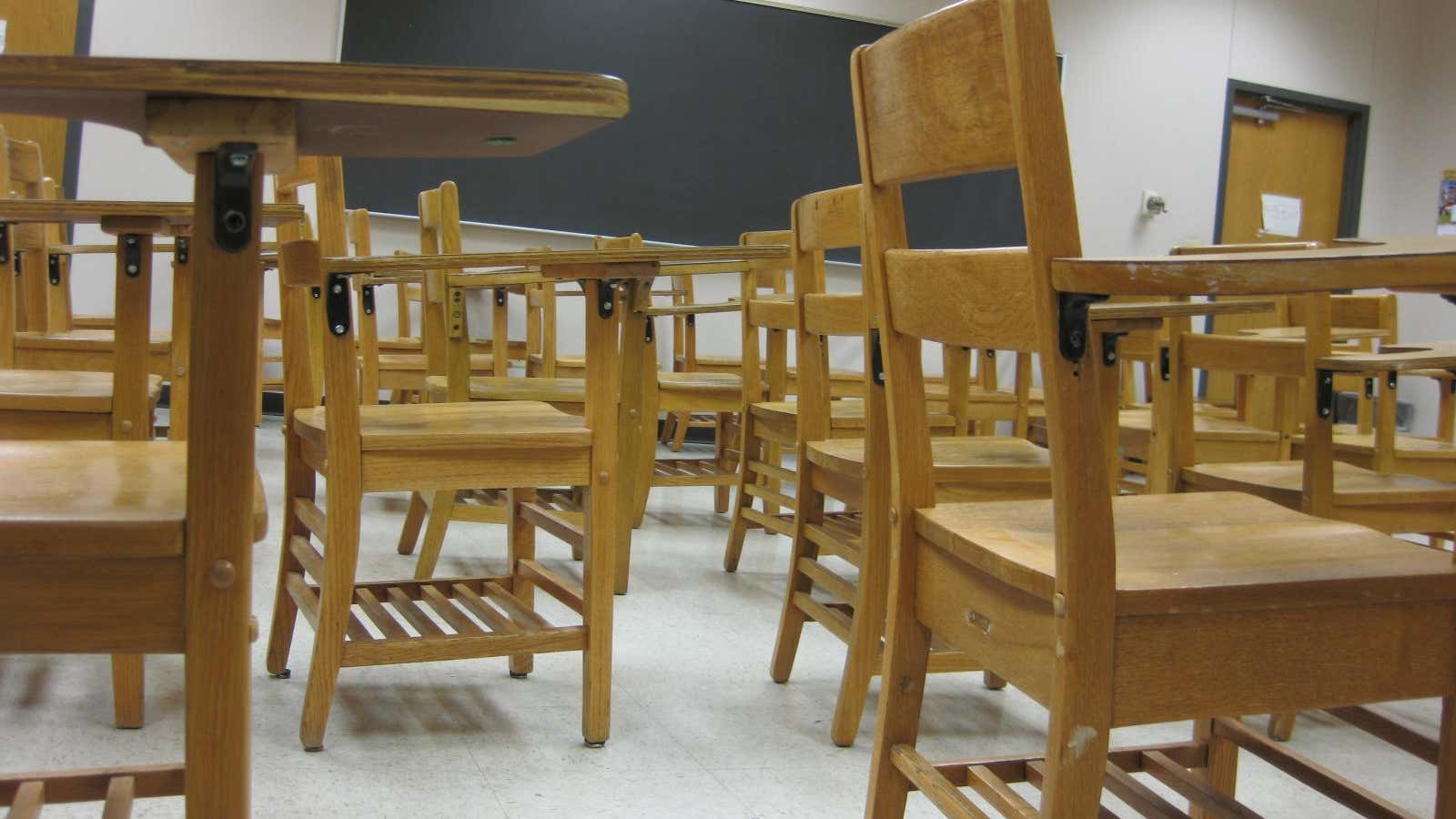On Feb. 18, Oklahoma state legislator Dan Fisher convinced 10 other members of the House’s Education committee to pass HB 1380, a piece of “emergency” legislation “prohibiting the expenditure of funds on the Advanced Placement United States History course. Representative Fisher, a Republican, alleged that in the class, “the emphasis of instruction is on America as a nation of oppressors and exploiters,” and argued for a tweaked curriculum that would include, among other things, speeches by religious leaders and by former president Ronald Reagan. In the face of overwhelming opposition, Fisher has since backed down slightly, telling The Oklahoman he would “rework” the bill. But the controversy highlights a growing rift between educators and politicians, in Oklahoma and elsewhere, about how America’s legacy and history should be treated in the classroom. Quartz asked James LeGrand, an AP US History teacher at Oklahoma’s Altus High School—and the state’s 2014 History Teacher of the Year last year—what he thought about the controversy. Here’s what he had to say:
Needless to say I am dismayed by recent events that have taken place in our state legislature, and I’ve been overwhelmed by colleagues on the state and national level asking me about my thoughts on this issue. I teach APUSH at Altus Public Schools in southwest Oklahoma. At the core of [the legislators’] argument, in my opinion, is that we in the APUSH collective don’t emphasize to a high enough degree the value of “American Exceptionalism.”
We start each school year researching and discussing the differing views on Columbus and his impact on the Americas. We compose a small group seminar that reads selections from “A Patriot’s History” by Larry Schweikart and “A People’s History” by Howard Zinn. It is their job to debate the opposing views and come to conclusions on their own. The end result is that we see history is not black and white; it definitely lies in a grey area up for interpretation. We teach students to think for themselves using primary sources, to debate issues based on evidence and to view American history not only through an American prism but also from a global perspective. We look at America, warts and all, if you will.
How can we as educators emphasize the value of education in this society, while on the other hand, deal with leaders who have no experience in public education or curriculum-building telling us that they don’t want our students to see the underbelly of American society?
I tell my students that the ideals set forth during the foundation of this country influence who we aspire to be. It’s a process and we don’t always live up to those aspirations. I’m not going to sugar coat slavery, or whitewash the treatment of Native Americans, or ignore Japanese internment; nor will I dismiss the intentions of our founding fathers, intentions that figures like Abraham Lincoln and Dr. Martin Luther King Jr. gave their lives trying to hold us as a nation accountable to. I love the line in the film Fury, “Ideals are peaceful, history is violent.”
I believe in what this country stands for. We must continue to work toward those ideals that were set forth by our founding fathers, and the key to that is through education! We in APUSH peel back the layers of history like an onion and try and see it for what it really is. Oklahoma is a conservative state but this movement is beyond politics. It’s ignorance run amuck. And I for one am embarrassed by the obvious lack of education, if you will, of those who would attempt to stifle the very ideals our democracy was founded on.
